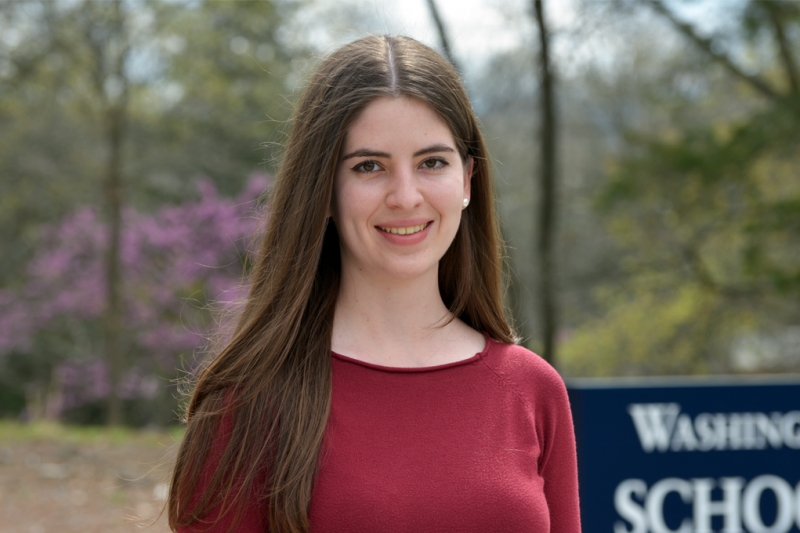Career Paths: Elena Schiefele ’22L After graduation, Elena Schiefele will work for a law firm for a year and then clerk for the U.S. Court of Appeals for the Fourth Circuit.
Elena Schiefele graduated from Florida Atlantic University in 2019. She has been a research assistant for Professor Hasbrouck since her 1L summer and interned at the Federal Public Defender’s Office for the Western District of Virginia during her 2L summer. Elena also serves as a Managing Editor of the W&L Law Review.
Where will you be working after graduation and in what practice area?
After graduation, I will be working in Sanford Heisler Sharp’s D.C. office for one year before clerking for Chief Judge Roger L. Gregory in the Court of Appeals for the Fourth Circuit.
Did you know coming into law school that you wanted to clerk?
No. When I started law school, I thought I wanted to do corporate transactional work, but by the end of my 1L year I realized that what I was really interested in was appellate litigation. When I talked to several of my professors about this new goal, they encouraged me to start my career by clerking.
Was there anything in your law school or summer experience that confirmed this career choice?
During the Fall 2021 semester, I externed for a magistrate judge in the Western District of North Carolina. That experience was one of my favorite things that I’ve done during law school and confirmed my decision to clerk. I loved the close, collaborative working relationship between the judge I externed for and his clerks. I also learned something new in every case that I worked on during the externship. My professors talked about their past clerkships in similar terms, and I am excited to keep learning during my clerkship with Judge Gregory!
What classes do you think are helpful to prepare for this job?
I think any class that has a substantial writing component is extremely helpful because of the amount of writing clerks do. To that end, I think being on a journal is also beneficial. Professor Hasbrouck’s Statutory Interpretation Practicum will be particularly valuable because statutory interpretation is part of so many federal cases.
Can you describe the job search process?
Federal judges mainly hire through one of two processes: the online federal judicial hiring system (OSCAR) or mailed paper applications. For 2Ls, OSCAR opens on June 14th of their 2L summer. I sent out A LOT of applications both through OSCAR and by mail.
What are you most looking forward to about this job?
I’m looking forward to being part of a small, close knit team and I’m extremely excited for the opportunity to keep learning about many different areas of the law through the cases I will work on.
 Elena Schiefele ’22L
Elena Schiefele ’22L
You must be logged in to post a comment.